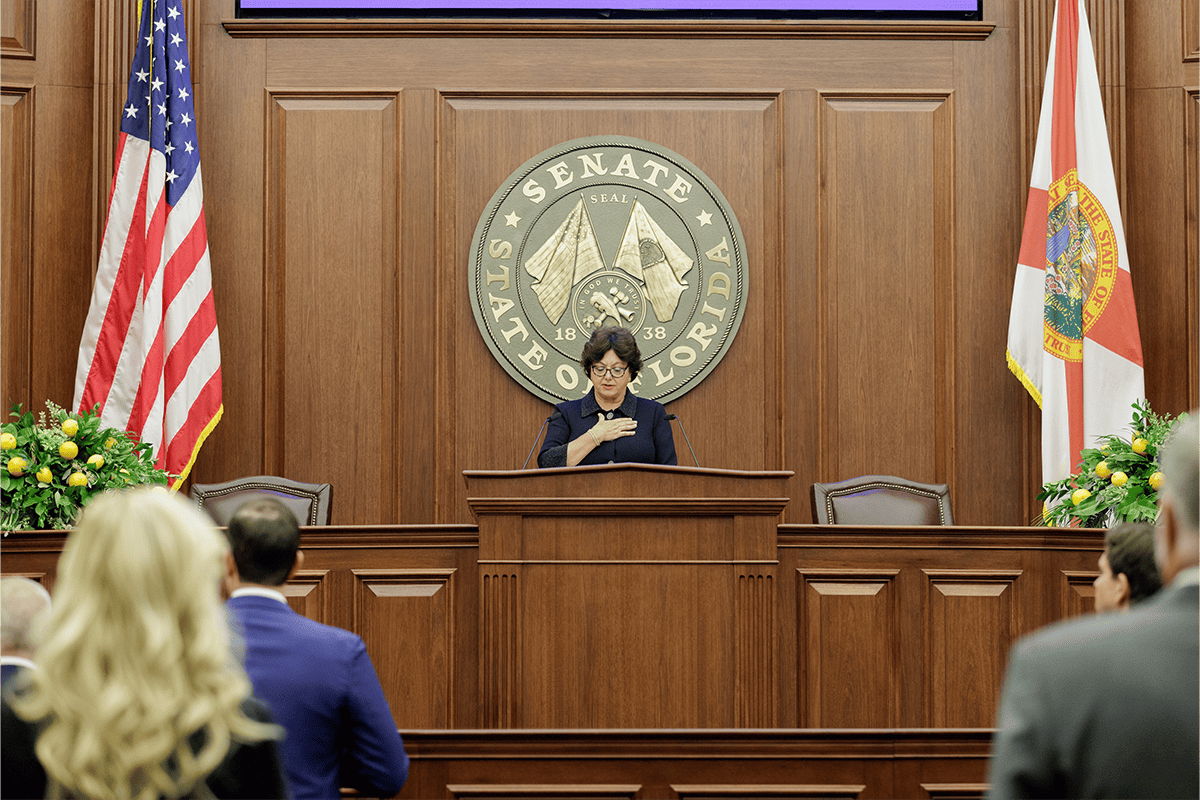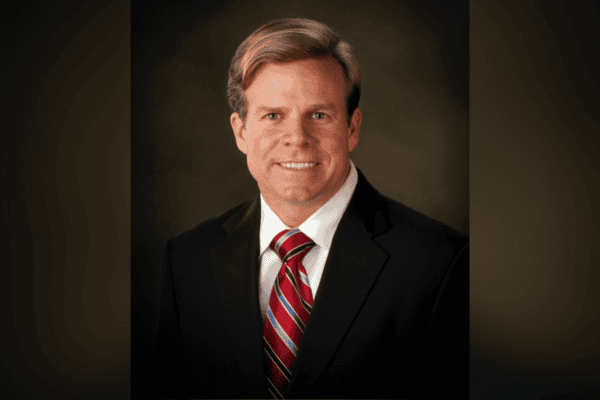Homeless camping and retail theft crackdown, pro-first responders bills head to DeSantis

TALLAHASSEE, Fla. – Florida’s Voice spoke with lawmakers on hot topic bills heading to the governor’s desk including the crackdown on homeless camping, a ban on cultivated meat, tighter penalties for retail theft and more.
Cracking down on homeless camping
Sen. Jonathan Martin, R-Fort Myers, carried one of the most talked about bills that cracks down on homeless camping.
The bill prohibits a county or municipality from authorizing or permitting public sleeping or public camping on public property without a lawfully issued temporary permit. Rep. Sam Garrison, R-Fleming Island, carried the bill in the House.
In an interview with Florida’s Voice, Martin said this bill is a “compassionate response” to the shortage of shelters by providing an alternative to “sleeping in the streets.”
Under the bill, a county may, by majority vote of its governing body, “designate property owned by the county or by a municipality within the county to be used for public camping or sleeping for up to one year.”
The designated property must establish standards including ensuring safety, maintaining sanitation including restrooms and running water, and coordinating with the regional managing entity to provide access to behavioral health services. This includes substance abuse and mental health resources.
The bill passed through the Health and Human Services Committee which was chaired by Rep. Randy Fine, R-Palm Bay.
“I was proud to work with future Speaker Garrison on that. Look, we don’t want to be California. We don’t want to be New York. And you know, this notion that you can just sleep on the street in front of a building is absurd,” Fine said in an interview with Florida’s Voice.
“If you’re going to be homeless, then you’re going to go to a place where homeless people go, but you don’t have the right to just set up camp wherever you want it to be,” Fine continued.
Martin said this legislation was not an attempt to “push people into a corner.”
“This was actually an opportunity to be much more efficient, much more intentional with the money that we’re already allocating from the federal government, the state, to local government, for not-for-profits,” Martin said.
Sen. Jason Brodeur, R-Lake Mary, who also voted for the bill, told Florida’s Voice he believes the bill is a “good step forward.”
“I think it’s going to help, not only the residents who want to do something – but don’t know if giving out $1 out their window at a stoplight is really addressing the problem – and it’s going to help those who really have the short term needs for social services to get those much faster,” Brodeur said.
Agriculture, banning cultivated meat
Another bill carried by Sen. Jay Collins, R-Tampa, focuses on protecting agriculture. A big component of the bill is banning cultivated meat. Rep. Danny Alvarez, R-Riverview, carried the bill in the House.
Collins’ legislation prohibits and creates penalties for the manufacturing, sale or distribution of cultivated meat in the state.
“There’s a lot of really unproven science, there’s a lot of issues with a scaling of this, with the safety of this, with the suitability of this, not to mention the ethics of cultivated meat,” Collins told Florida’s Voice.
Agriculture Commissioner Wilton Simpson previously complimented the sponsors of the legislation and the impact that the bill would make.
Sen. Clay Yarborough, R-Jacksonville, also spoke with Florida’s Voice on why he supported the legislation.
“Commissioner Simpson has done a great job safeguarding our food supply in Florida… if we just let anything on the shelves out there that’s really new and not really tested, and we don’t know all the health impacts one way or the other, then I think that blame lies at our feet, if our folks are, you know, having health issues,” Yarborough said.
The bill would also preempt the regulation of electric vehicle charging stations to the state and prohibit local governments from implementing their own policies.
Additionally, the legislation provides regulations for the destruction, harvesting and sale of saw palmetto berries.
Protecting first responders from fentanyl exposure
The governor’s push for law and order in Florida was further bolstered by Collins who wants to hold people accountable if they expose first responders to fentanyl.
Rep. Jessica Baker, R-Jacksonville, sponsored the House version of the bill.
According to the bill, an individual 18 or older, who while unlawfully in possession of hazardous fentanyl or fentanyl analogs, “recklessly exposes” a first responder to substances resulting in an overdose or severe bodily harm to the responder, will be charged with a second-degree felony.
“What we want our first responders to know that without equivocation, we stand beside you,” Collins said.
For a full list of hot topic bills slated for the governor’s desk, click here.



